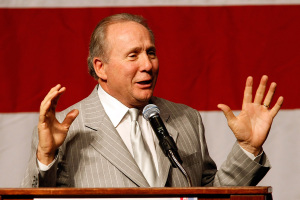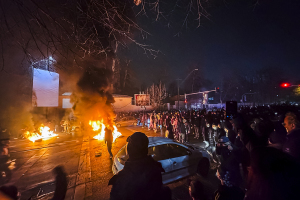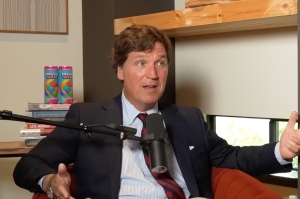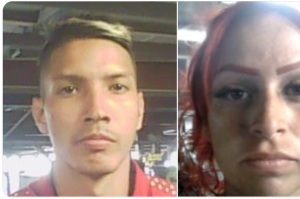Morgan Freeman Explores Why Evil Exists in 'Story of God'
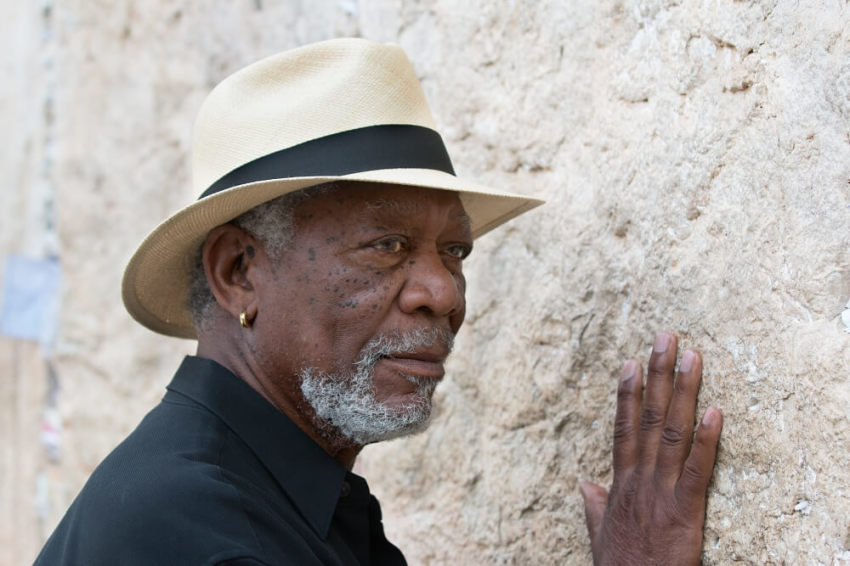
In Sunday's fifth episode of National Geographic's "The Story of God," actor Morgan Freeman continues his quest to find out why evil exists in the world.
"To understand why evil exists, we have to know where it comes from," Freeman says. "For Christianity, it could be the devil himself, or is evil something that comes from inside us?"
Growing up as a child in Mississippi, Freeman encountered his first experience with evil in the form of racism at a Greyhound bus station where white and black people were segregated and he was forced to enter through a door designated for "colored" people. Freeman explains that as a young boy, he was confused by the ordeal.
"As a kid, when you're confronted with an evil like racism your first reaction is confusion. Why does this exist? Where does it come from? If you believe we live a world under divine control, why should evil exist at all?" the actor questions.
Along his journey to find answers about the source of evil, the Academy Award winner travels to Egypt, India, New Zealand and cities throughout the United States to interview scholars and religious leaders about the origins of evil and how it impacts our daily lives.
His first stop is to interview a notorious serial rapist and murderer who reveals that he doesn't feel remorse for the evil he's committed, and explains that he acts out on impulses he's unable to control.
Kent Kiehl, a neuroscientist who analyzes the MRI brain scans of convicted killers, tells Freeman his hope is that one day scientific technology will be able to predict which people are most likely to commit henious crimes in an effort to prevent them from harming others.
Then, during a tour of Egyptian tombs in Luxor, Egypt, Freeman hypothesizes that the root of the belief in good and evil and whether or not one can get into Heaven hails from ancient Egyptian culture. He reasons that modern-day Christians can study the ancient Egyptians and their belief that the god Osiris determined people's fate by judging the condition of their hearts as one of the first documented beliefs in the evil that plagues humanity.
"Are we inherently good or inherently evil?" Freeman ponders.
In his quest to find answers, Freeman meets with theologian and Pastor Kutter Callaway to ask if humans are evil at heart. The Baptist minister explains that Christian's believe in original sin.
"Christian tradition has coined original sin some primal desire that we all have, a basic human urge or impulse," he said, commenting on perpetual sin and Satan tempting Jesus.
Freeman's next stop is to meet with leaders of the Zoroastrian community in California who believe Jews and Christians get their belief in the devil from them. One Zoroastrianism scholar told Freeman that the Jewish people first learned about the devil in Babylon, asserting that prior to that, the Jews didn't believe in Satan.
The actor said he likes Zoroastrian theology which teaches that good and evil exist within us all and we must choose to do good. Thus, humans can purge evil from within and don't need to fear God's judgement to be good people.
In this episode on "Why Does Evil Exist?" a social experiment conducted New Zealand reveals that people are more honest when they believe someone is watching them, like God.
While in India, Freeman also witnesses a Hindu exorcism and watches Tibetan Buddhist munks perform a ritual to cleanse themselves of the negative thoughts that exist within them.
Freeman's quest ends following an interview with a former Nazi skinhead who transforms his life after he accepts Jesus Christ into his life.
Freeman commends the man and tells him that he represents the hope of the world.
"Evil can be contained. This hope is at the core of the Christian faith," Freeman said.
The episode ends with a scene showing people being baptized in a river.
"People sin but those sins can be washed away," Freeman says.
"We need to know evil because it drives us to do good. The ability to express kindness, mercy, [and] forgiveness."
For more information about "The Story of God," visit www.natgeotv.com. The six-part mini-series runs on National Geographic Channel at 9 p.m. ET on Sundays.














